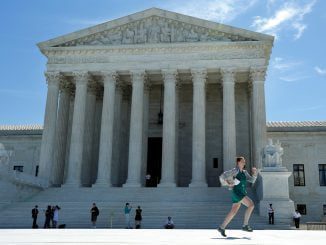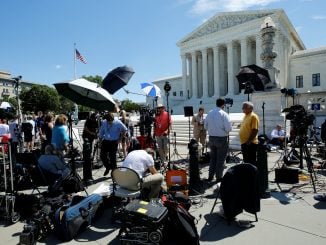
 Court packing is not new. A Democratic president tried it 83 years ago. He did not succeed. A North Carolina senator led the fight.
Court packing is not new. A Democratic president tried it 83 years ago. He did not succeed. A North Carolina senator led the fight.
By early 1937, President Franklin Roosevelt’s mastery of the federal government was nearly complete. He had just won a whopping 60.8% of the popular vote and swept 46 out of 48 states in the Electoral College. Democratic majorities in the House and Senate were at record levels. The only remaining hurdle was the Supreme Court. It was against this backdrop of apparent invincibility that the president overreached both his constitutional boundaries and his political base. The result was a conservative congressional backlash of enduring importance.
During his first term, Roosevelt had grown increasingly frustrated over the Supreme Court’s rulings that found key New Deal legislation unconstitutional. By a narrow 5-4 majority the court had invalidated the Agricultural Adjustment Act, the National Recovery Administration, and the Guffey Coal Act. Roosevelt fumed at what he saw as the court’s thwarting of the popular will. In February 1937, Roosevelt proposed what came to be known as his “court packing” scheme. Under the flimsiest of pretenses, Roosevelt sought to expand the court from nine justices to fifteen.
This court packing initiative did more to galvanize opposition to the New Deal than any other single event. A bipartisan group of conservative senators rallied public opinion and ultimately blocked the plan. The leader of the opposition was a conservative Democrat, Josiah Bailey of North Carolina. Elected to the senate in 1930, Bailey was so known to express righteous indignation over even the most minor issue that he was sometimes referred to as “Holy Jo.” One political foe labeled Bailey “super-ethical, super-constitutional, and supercilious.” The liberal magazine, The Nation, characterized Bailey as a “diligent scholar whose devotion to abstract principles of right and wrong in civil and political affairs borders on fanaticism. He is a brilliant but painstaking student whose mind quickly cuts through to the heart of a thing with a logic that is irrefutable and a command of language that is unequalled.”
It did not take long to arouse Sen. Bailey. On February 13, just days after the administration introduced the court plan, Bailey launched a powerful attack on national radio. In what his senate colleague, Harry Byrd of Virginia, called “one of the classics of American oratory,” Bailey systematically dismissed FDR’s reasons for the proposal and concluded with the stern warning that the Supreme Court and the Constitution are inseparably linked, and that “to weaken either is to weaken the foundations of our Republic; to destroy either is to destroy the Republic.”
That rare thing, a successful and convincing argument, was being made on the Senate floor.
Bailey was soon joined by fellow Democrats Harry Byrd and Carter Glass of Virginia, Millard Tydings of Maryland, as well as most Republican senators. With public opinion swinging steadily against the measure, Carter Glass broadcast a national radio message in May attacking the plan: “I am speaking from the depths of a soul filled with bitterness against a proposition which appears utterly destitute of a moral sensibility and without parallel since the foundation of the Republic.”
In June, the Senate Judiciary Committee, by a 10-8 vote rejected FDR’s bill as unconstitutional, but Senate majority leader Democrat Joe Robinson then brought an amended version of the bill to the floor on July 6 with a rousing speech demanding party loyalty. Bailey found the amended bill to be as unconstitutional as the original and led the floor fight against it. When Bailey rose on the senate floor to respond to Robinson, the chamber fell silent; and in Robinson’s own words, “That rare thing, a successful and convincing argument, was being made on the Senate floor.”
Recognizing that the tide had turned, Robinson abruptly left the senate chamber in the midst of Bailey’s speech to telephone the attorney general: “Bailey’s in there and he’s making a great speech… He’s impressing a lot of people, and I tell you I’m worried.” To defeat the bill, the opposition needed to convince three undecided senators; Bailey’s speech secured the necessary votes. Vice President John Nance Garner tried to broker a compromise, but Bailey refused to concede on what he saw as a fundamental constitutional issue. Roosevelt was forced to abandon court reform.
Garland S. Tucker III, retired Founder/CEO, Triangle Capital Corporation, and author of The High Tide of American Conservatism: the 1924 Election and Conservative Heroes: Fourteen Leaders Who Shaped America- Jefferson to Reagan.



